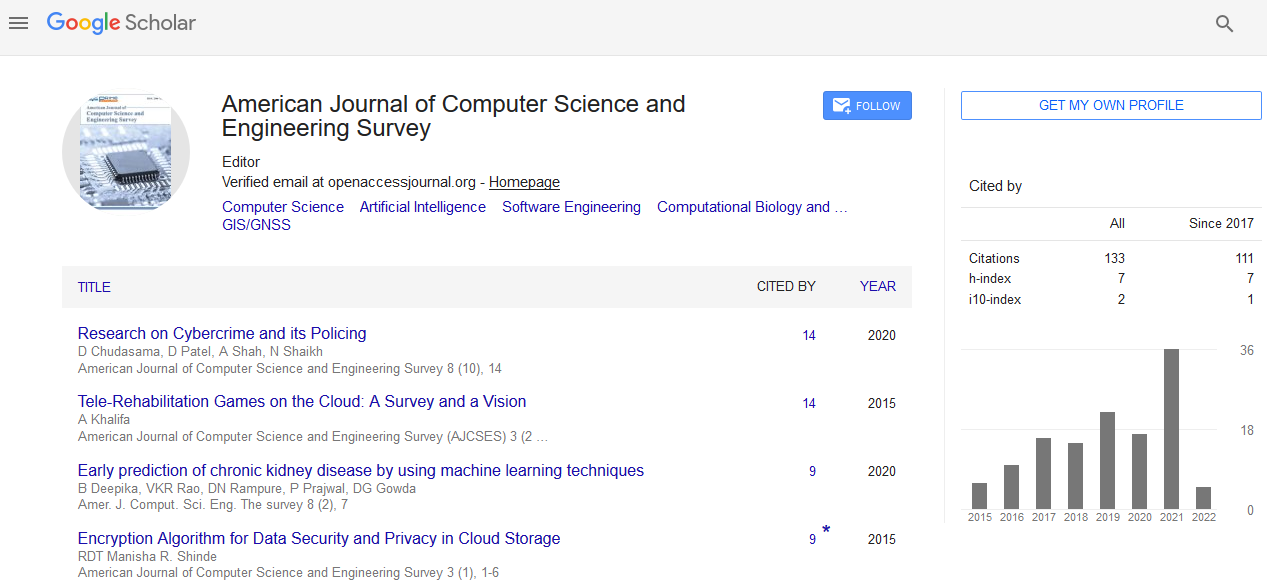Commentary - (2024) Volume 12, Issue 3
The Importance of AI in Software Technologies: Driving Innovation and Efficiency
Liam Johnson*
Department of Science and Engineering, Yale University, USA
*Correspondence:
Liam Johnson,
Department of Science and Engineering, Yale University,
USA,
Email:
Received: 02-Sep-2024, Manuscript No. IPACSES-24-21242;
Editor assigned: 04-Sep-2024, Pre QC No. IPACSES-24-21242 (PQ);
Reviewed: 18-Sep-2024, QC No. IPACSES-24-21242;
Revised: 23-Sep-2024, Manuscript No. IPACSES-24-21242 (R);
Published:
30-Sep-2024, DOI: 10.36846/2349-7238.24.12.28
Description
Artificial Intelligence (AI) is not merely a buzzword; it has
become a cornerstone of modern software technologies. As AI
continues to evolve, its integration into software development
and deployment is transforming industries, enhancing user
experiences, and driving innovation. This article explores the
significance of AI in software technologies, examining how it is
reshaping the landscape of software development, improving
operational efficiency, and unlocking new possibilities. AIdriven
tools are revolutionizing the way software is developed.
Techniques such as machine learning and natural language
processing (NLP) are being used to automate code generation,
debugging, and testing. Tools like GitHub Copilot, powered
by OpenAI’s Codex, assist developers by suggesting code
snippets and automating repetitive coding tasks. This not
only accelerates the development process but also reduces
the likelihood of human error. Testing is a crucial part of
the software development lifecycle. AI enhances testing by
enabling more sophisticated and automated approaches. AIdriven
testing tools can simulate various scenarios, detect
bugs, and identify vulnerabilities more effectively than
traditional methods. These tools can analyze large datasets to
find patterns and anomalies, improving software reliability and
performance. AI contributes to software design by providing
insights and recommendations based on data analysis.
Design tools integrated with AI can suggest user interface
improvements, optimize user experience, and predict how
changes will affect the software’s performance. This results
in more intuitive and user-friendly applications. AI algorithms
are used to predict software maintenance needs before
they become critical issues. By analyzing historical data and
monitoring software performance, AI can forecast potential
problems and suggest preventive measures. This proactive
approach helps in minimizing downtime and maintaining
software efficiency. AI facilitates process automation through
robotic process automation (RPA) and machine learning
algorithms. These technologies automate routine tasks such as
data entry, report generation, and customer support, freeing
up human resources for more strategic activities. This leads
to increased operational efficiency and cost savings. AI-driven
analytics tools provide valuable insights from large volumes of
data. By leveraging machine learning algorithms, these tools
can uncover hidden patterns, trends, and correlations that
inform decision-making. This enhances business intelligence
and enables organizations to make data-driven decisions with
greater accuracy. AI enhances user experiences by enabling
personalization and customization. AI algorithms analyze user
behavior, preferences, and interactions to deliver tailored
content, recommendations, and functionalities. For example,
streaming services use AI to recommend movies and shows
based on users’ viewing history, while e-commerce platforms
personalize product recommendations. AI is at the forefront
of creating new software applications that were previously
unimaginable. Technologies such as natural language processing
enable the development of sophisticated chatbots and virtual
assistants, while computer vision facilitates advancements in
image recognition and augmented reality (AR). AI is also driving
innovation in fields like autonomous vehicles, healthcare, and
finance. The future will see increased collaboration between
humans and AI, with AI augmenting human capabilities and
creativity. This collaborative approach will lead to more
innovative solutions and improved outcomes across various
domains. AI combined with edge computing will enable realtime
data processing and analysis closer to the data source.
Acknowledgement
None.
Conflict Of Interest
None.
Citation: Johnson L (2024) The Importance of AI in Software Technologies: Driving Innovation and Efficiency. Am J Comp Science. 12:28.
Copyright: © 2024 Johnson L. This is an open-access article distributed under the terms of the Creative Commons Attribution License, which permits unrestricted use, distribution and reproduction in any medium, provided the original author and source are credited.

